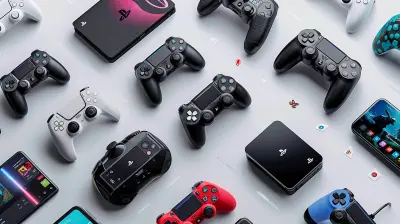Why Your Keyboard Might Be Holding You Back
2 October 2025
If you’ve ever blamed lag, frame drops, or dodgy teammates for your gaming losses—believe me, we’ve all been there—you might want to zoom in on something a little closer to home: your keyboard. Yep, that humble slab of plastic and keys right in front of you might be the real weak link in your setup.
You might be thinking, "It’s just a keyboard, how much difference could it make?" But here’s the thing—your keyboard is literally what connects your mind to the digital world. Whether you're pulling off clutch headshots, dodging enemy fire, or just typing out some trash talk, your keyboard is doing the heavy lifting. So, if it's slow, unresponsive, or just uncomfortable, it could be dragging you down without you even realizing it.
Let's break down how and why this matters, especially if you're serious about gaming.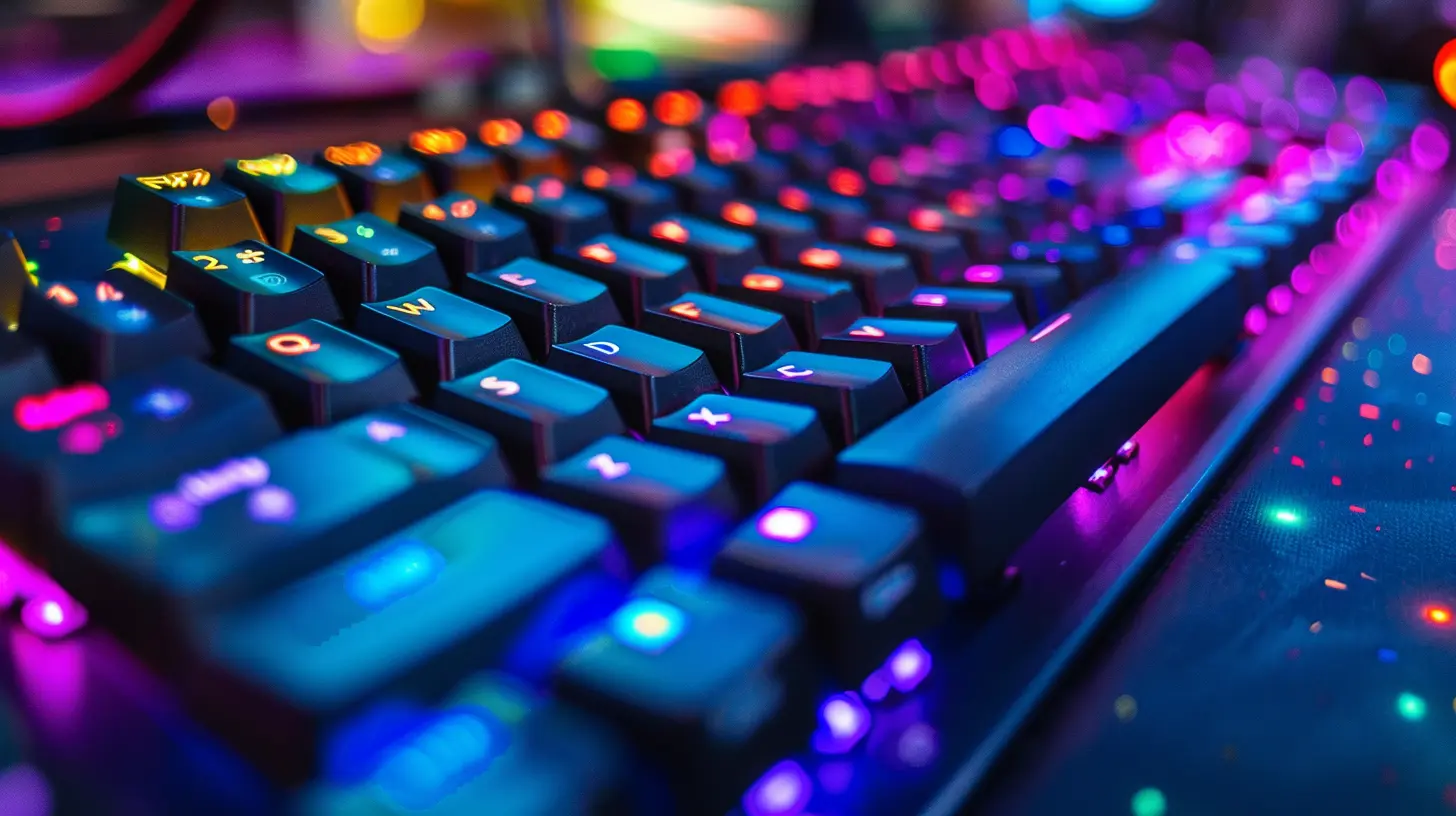
The Hidden Impact of a Poor Keyboard
1. The Latency Factor: Every Millisecond Counts
Latency may sound like something out of a sci-fi show, but in gaming, it’s hardcore reality. It's the time it takes between you pressing a key and the game responding. Even a few extra milliseconds can be the difference between winning and respawning.Most cheap or old keyboards have higher input lag. Mechanical gaming keyboards, especially those with low-latency switches, are designed to cut that delay way down. If your keyboard isn’t keeping up with you, you’re basically running a race in sand.
2. Key Rollover and Ghosting: Are All Your Moves Registering?
Ever tried to move, jump, and shoot all at the same time, only to find that one of your actions didn’t happen in-game? That’s likely key ghosting or a lack of N-key rollover (NKRO) at work.Non-gaming keyboards often struggle to process multiple keystrokes at once. That means your split-second decisions might not even make it into the game. For FPS games, MOBAs, or even competitive RPGs—this is huge. If your commands aren’t coming through, you might as well be using smoke signals.
3. Build Quality and Durability: Your Keyboard's Taking a Beating
Let’s be honest, gaming can be a little… intense. We’ve all slammed down a key or two in frustration. Budget keyboards aren’t built to survive that kind of abuse. Keys get stuck, break, or wear out fast.Mechanical keyboards, on the other hand, are meant to last tens of millions of keystrokes. They’re built like tanks. A solid keyboard won’t just feel better—it’ll stick around longer.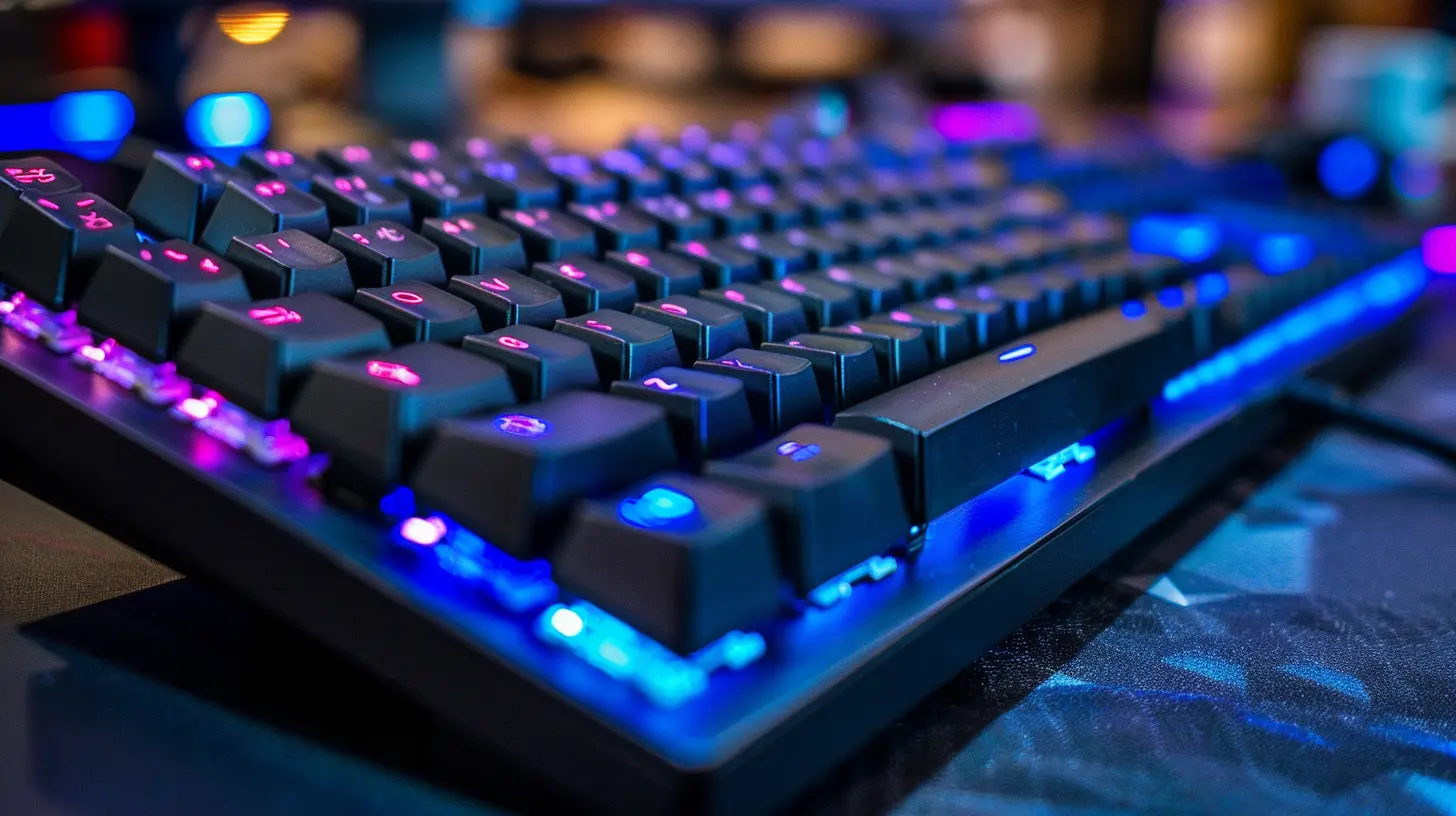
Why the Feel of Your Keyboard Really Matters
4. Typing Feel and Tactile Feedback
If you’ve never tried a mechanical keyboard, you’re missing out. The tactile feedback, the satisfying click (or smooth silence, if you're into that), and the responsiveness can make gaming and typing way more enjoyable.Think of it like driving an old pickup versus a tuned sports car. Both get you from A to B, but one makes you feel like a legend doing it. A better feel leads to faster reactions and less fatigue during long gaming sessions.
5. Ergonomics: Avoid Those Wrist Aches
Gaming for hours on end? It happens more often than we admit. But poor keyboard ergonomics can lead to wrist strain, finger fatigue, and even long-term issues like carpal tunnel. The right keyboard—especially one with a wrist rest, adjustable tilt, and comfortable spacing—can reduce strain and help you play longer, comfortably.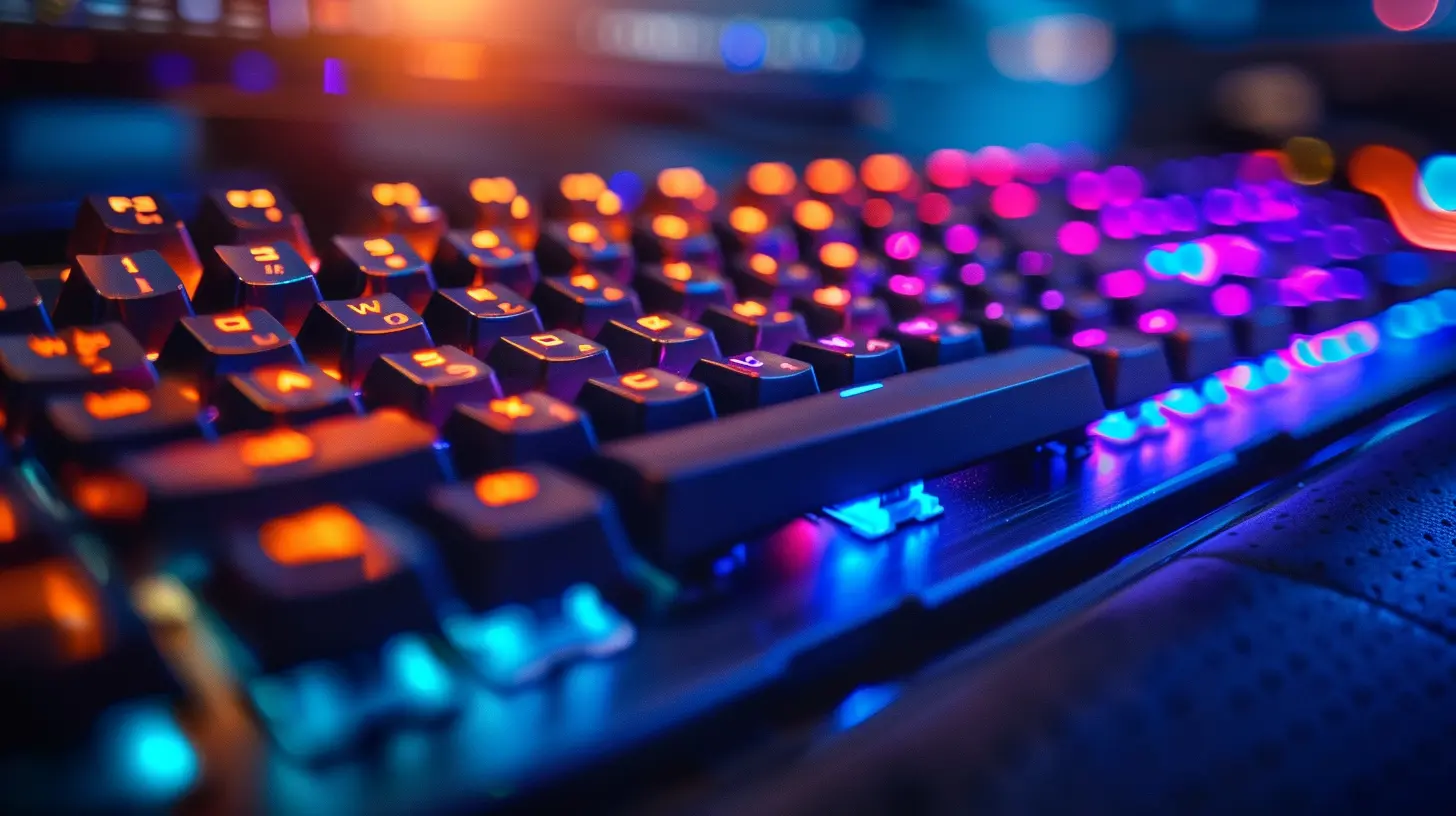
Features That Give You The Edge
6. Customizable Keys and Macros
If your current keyboard doesn’t offer programmable keys or macros, you’re missing out on sweet efficiency. Imagine triggering complex in-game commands with one button. That’s the kind of competitive edge that separates casuals from pros.Even beyond games, programmable keys can help with productivity. Whether it’s launching apps, typing common phrases, or handling Twitch streams, macros save time and effort.
7. Backlighting: Not Just for Looks
RGB lighting might seem like just a flashy gimmick, but it’s actually useful during late-night gaming sessions. You can see your keys in dim lighting and even customize lighting zones for better in-game navigation. Plus, let’s be honest—it looks seriously cool.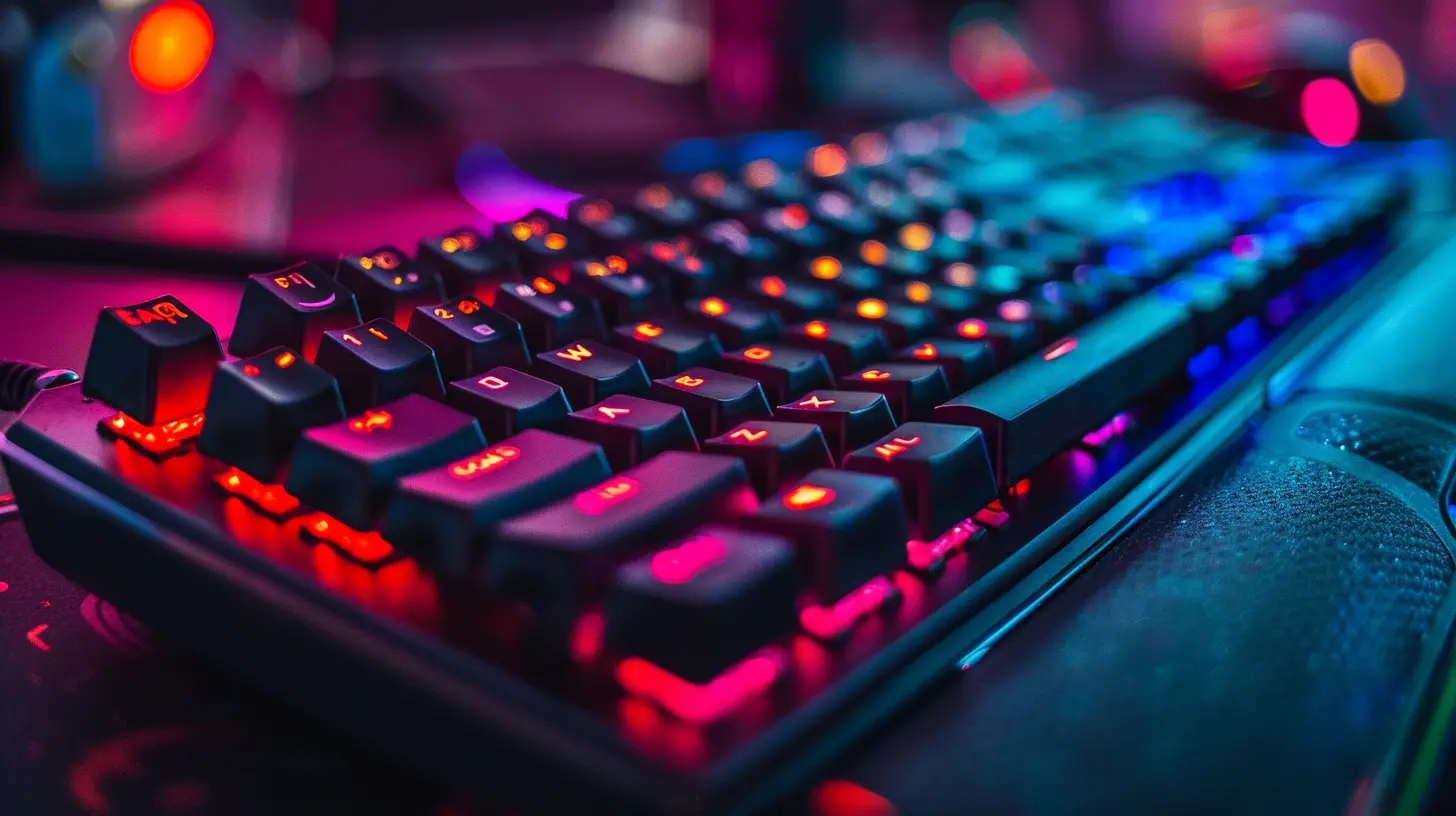
Different Keyboards for Different Players
8. Membrane vs Mechanical: The Battle Begins
If you’re gaming on a standard membrane keyboard right now, you might not even realize what you're missing. Membranes are cheap and quiet, but they're also mushy and slow.Mechanical keyboards come with various switch types (like Cherry MX, Razer Optical, or Logitech’s Romer-G), each with their own feel and actuation speed. Some are made for speed, while others focus on feedback. Choosing the right switch is like finding the perfect pair of shoes—once you do, there’s no going back.
9. Wired vs Wireless: Which One’s Right for You?
Wireless keyboards have come a long way, and some modern ones boast latency so low you’d never notice. But wired keyboards still edge ahead in reliability, especially in high-stakes gaming.If you’re always gaming on the go or hate cable clutter, wireless might be your jam. Just make sure you’re getting a model known for low latency and good battery life.
Budget Can Matter, But It’s Not Everything
10. High Performance Doesn’t Have To Be High Cost
You don’t need to drop hundreds on a top-tier keyboard. There are fantastic mechanical options in the $50–$100 range that blow any basic office keyboard out of the water.Think of a new keyboard as an investment—not just in your gaming, but in your comfort, speed, and reaction time. If you're putting hours into gaming each week, it’s worth every penny.
How To Know If Your Keyboard Is Holding You Back
Still unsure if your keyboard’s the problem? Ask yourself these:- Do some key presses not register during intense moments?
- Does typing or gaming feel slow, mushy, or unresponsive?
- Are you experiencing hand or wrist pain after gaming?
- Are you using a basic office keyboard that came with your PC?
If you answered “yes” to any of the above, your keyboard might be sabotaging your performance.
Real-World Gaming Scenarios & Keyboard Effects
Let’s paint a picture.You’re mid-match in Valorant. You go to strafe left, aim, and shoot. But your keyboard only registers two of those three actions. Boom—you’re down. Or maybe you're in a WoW raid, ready to hit a complex skill rotation, but your keys stick or lag a second. Team wipe. Not cool.
Or maybe you’re just feeling off—more typos, slower reactions, and sore fingers. Before you blame the game or your reflexes, look down. That budget keyboard could be quietly betraying you.
So, What Should You Look For In a Gaming Keyboard?
Here’s a quick checklist:- ✅ Low-input latency
- ✅ Full N-key rollover & anti-ghosting
- ✅ Mechanical switches with your preferred feel
- ✅ Excellent build quality
- ✅ Wrist rest or ergonomic design
- ✅ Customizable lighting and macros
- ✅ Solid reviews from real gamers
If your current keyboard checks none of these boxes, it’s probably time for an upgrade.
Final Thoughts: Don't Let Your Keyboard Be the Bottleneck
Gaming is competitive. Even if you’re not going pro anytime soon, you still want to play your best. You spend a fortune on graphics cards and monitors, so why skimp on the one piece of hardware you use constantly?A better keyboard isn’t just about speed—it’s about comfort, accuracy, and feeling in control.
So go ahead. Treat yourself to the keyboard your fingers deserve. Because at the end of the day, when you're one shot, one combo, or one legendary loot away from greatness… your keyboard shouldn't be what's holding you back.
all images in this post were generated using AI tools
Category:
Gaming KeyboardsAuthor:

Whitman Adams
Discussion
rate this article
1 comments
Felicity McWain
Don’t let a stubborn keyboard stand in your way! Upgrade, explore, and unleash your full gaming potential—your next victory awaits!
October 4, 2025 at 3:11 AM

Whitman Adams
Thanks for the encouragement! Upgrading can truly make a difference in performance and comfort. Game on!
